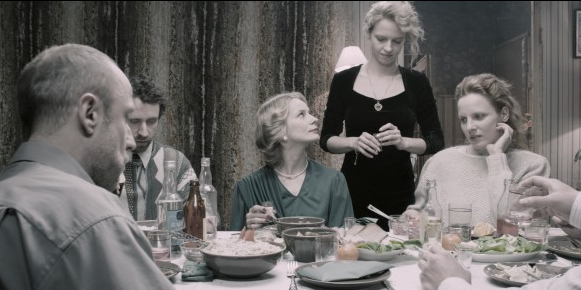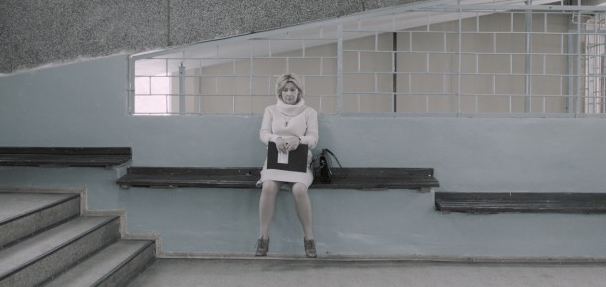It’s the dawn of a new era in ’90s Poland. The Wall is no more; ideas, news, and commodities from the West are coming in hard and fast, along with messages from family members working in West Germany, taped-over pornos on VHS. Yet those vague promises of freedom also reveal a disquieting undercurrent and the sense that, whatever the future may bring, there’s a harsh present that still needs to be reckoned with.
This is especially apparent in the isolated town that Tomasz Wasilewski picks as the setting of his austerely accomplished third feature United States of Love — removed from the city and shot grey-on-grey against miles of wintry landscapes, these apartment complexes feel like a world of their own. A world that those seeking change, consciously or otherwise, will also find capable of oppressively folding onto itself.

Perfectly summed up by the local priest (“Lord, I bring to you my narrow borders. Turn them into infinity”), this tension is strangling the four women in Wasilewski’s story, who are united not only by love but by an aching awareness of its impossibility. School principal Iza (Magdalena Cieleka) has been having an affair with the recently widowed father of one of her students, a relationship tainted to the point that when she swears she’ll do anything for him, he opens the window and suggests she jump. A soon-to-be-ex-teacher at the same school, Renata (Dorota Kolak), is an older woman secretly in love with a young girl; she’s also quite fond of the birds flying freely around her apartment, having upgraded from their cage to hers.
Agata (Julia Kijowska) has a teenage daughter and a husband who can’t possibly understand the depths of her despair. She treats him coldly during the day and seeks his touch at night, a palliative substitute for the priest whose house-blessing ritual she awaits with such anticipation. And finally, Iza’s sister, Marzena (Marta Nieradkiewicz), who aspires to be a model but, in the meantime, is only framed by Renata’s spy hole across the hall.
All residents of the same massive block of flats, their stories intersect and overlap as neighborly affairs are bound to do. Wasilewski and his cinematographer Oleg Mutu (4 Months, 3 Weeks and 2 Days) establish an effective visual pattern of stillness for scenes reiterating the status quo, with a fixed camera and centered compositions bolting the women to their domestic place.

Conversely, handheld, over-the-shoulder shots timidly escort them outside in mostly ill-advised attempts to break free of their constrictions. As a result, there are a few gasp-inducing moments — for the audience, if not the characters — which, paired with the previous, painful lull, astutely mimic the oscillations in mood that come with such prolonged psychological strain.
The film owes a lot to the four central performances, with Kijowska proving especially heartbreaking in her solitude and, at one moment, indelibly framed by entire shelves of VHS tapes closing in on her. Wasilewski’s rich portrait of the period, shining through particularly in the decor and the little behavioral details, betrays his closeness to the material and his empathy for these four very different women. And yet even that affection seems drowned out by bitterness in the end, as if the director himself has lost his characters in that inescapable, unforgiving residential maze.
United States of Love premiered at the 2016 Berlin International Film Festival and is currently without U.S. distribution.

